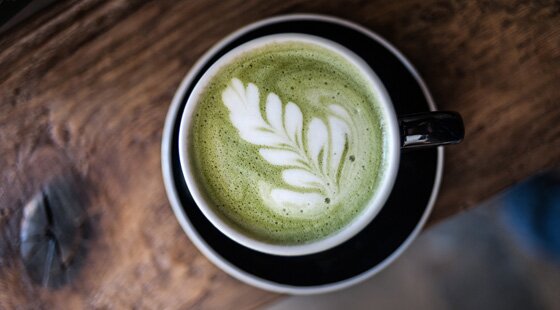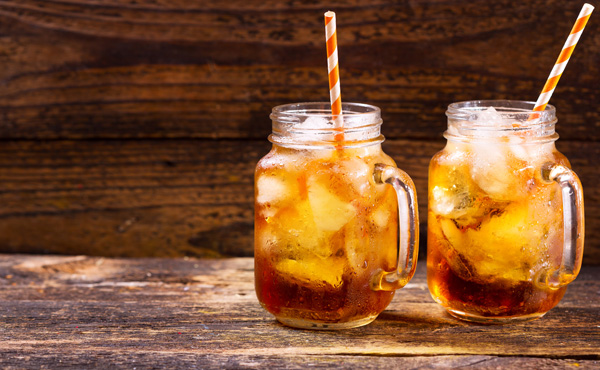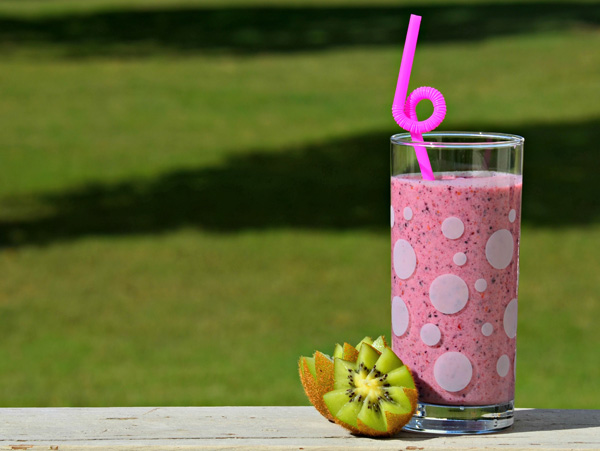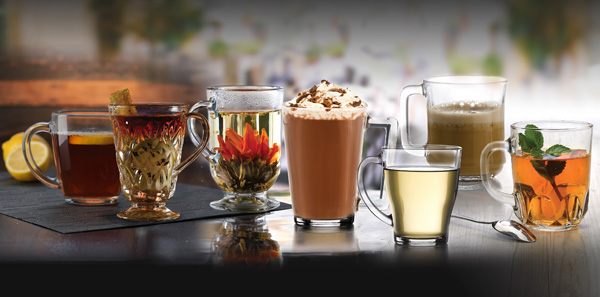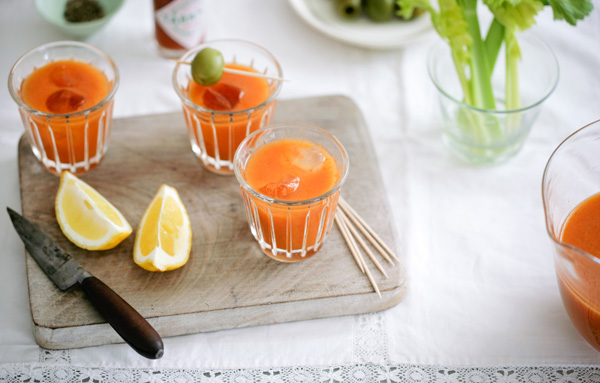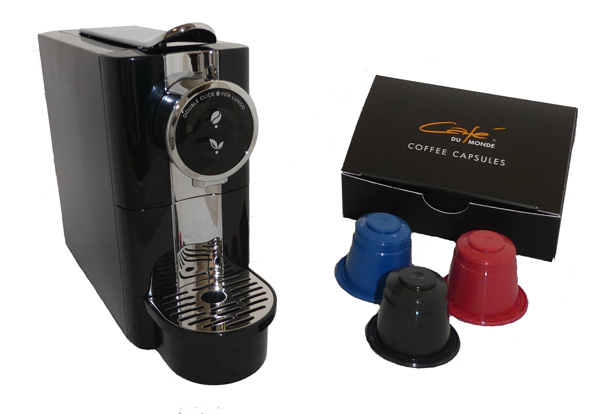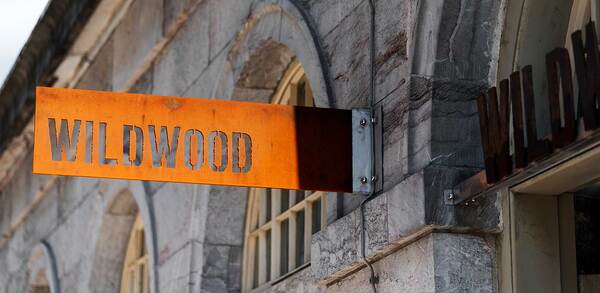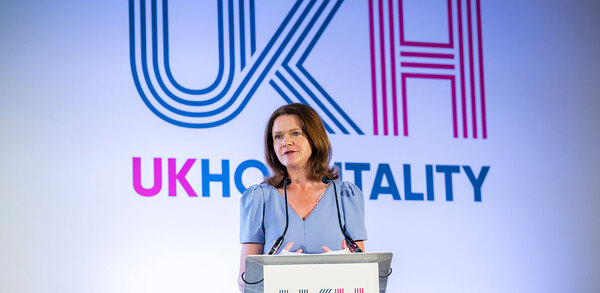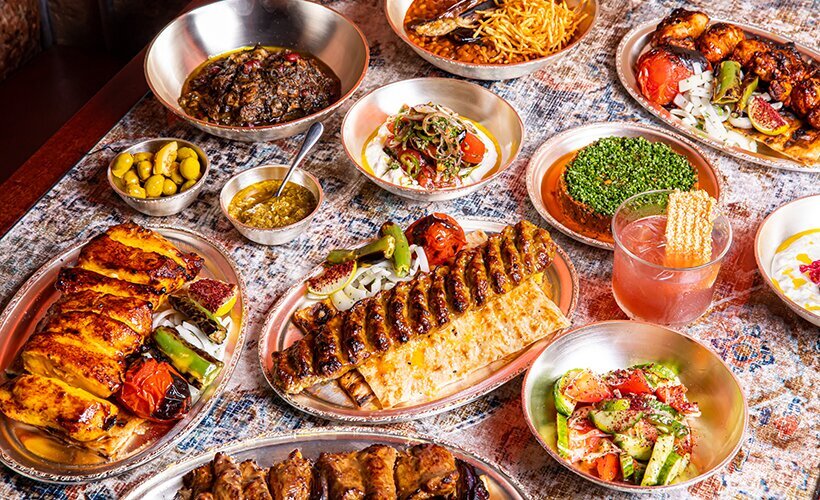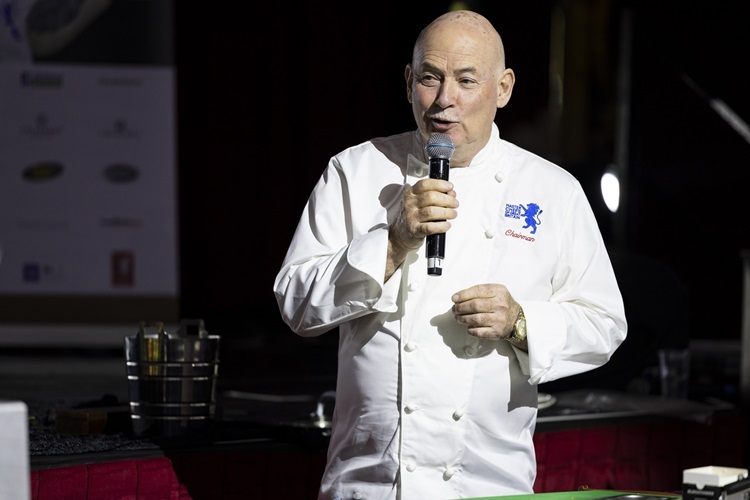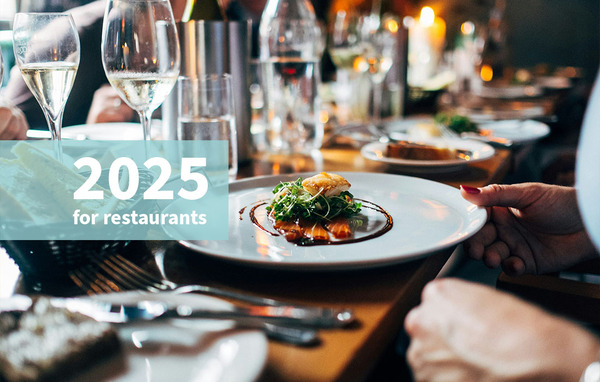Breakfast beverages to wake up your morning menu
If your breakfast beverage offer amounts to little more than a glug of tea or a swallow of coffee for busy customers, then you're letting your patrons and your business down, as Anne Bruce explains
Breakfast may not be everyone's favourite time of day. The number of mugs on sale with inscriptions such as "Not a morning person" or "Allergic to mornings" is evidence of that. Another vein of mug humour runs along the lines of "Life begins after coffee" or "Don't speak to me till I've had my coffee".
Mug jokes attest to the truth that consumers should not be messed with when it comes to drinks served in the breakfast timeslot. So how do you get your drinks range spot on to please customers at this most jarring time of day?
Suppliers agree that it is not just a quick shot of caffeine that people want in the morning.
Coffee and tea remain top sellers at breakfast, but expectations are high for these staples. And it may be that matcha green tea or a smoothie is an individualâs preferred fuel.
Crucial to success here is consistency of offering, which can only really come from equipment that is quick and easy for staff to operate, such as fully automatic bean-to-cup coffee machines and pod machines that can turn out a variety of speciality and on-trend coffees in volume.
Keep it clean
With the other big trend being for food and drink products that fit a healthy lifestyle, it makes commercial sense to offer breakfast drinks that satisfy a perceived health claim. Health is a focus, especially from the younger demographic, says Natalie Cross, out-of-home manager at Taylors of Harrogate, who adds that a well thought-through tea menu, with a mixture of quality black teas and innovative speciality teas, is key to a profitable breakfast menu.
Cross says: âConsumers are looking to start the day with a drink they perceive to be giving them a boost, and with 73% of consumers stating that healthier consumption is the most important current trend, decaf â¨and naturally caffeine-free options are the must-have menu options.â
Black tea with milk is the most popular choice for consumers when ordering tea out of home. Choice, though, is crucial â" consumersâ tastes are constantly evolving, and new flavours are emerging all the time.
The overall current economic climate may be proving challenging but there are still plenty of opportunities, Cross adds.
Tea up
Tea is a key source of revenue for operators, and no breakfast or brunch menu would be complete without the correct range of teas on offer, says Marshall Kingston, senior brand manager for out of home at Tetley.
Research from Tetley shows that 40% of all tea is drunk in the morning, and 62% of all tea occasions include the purchase of other items. Operators should accordingly consider breakfast meal deals encouraging â¨bigger spends.
Allegraâs 2018 Project Tea Out-of-Home report says that functional tea offerings are gaining traction alongside health and wellness trends, as seen in the growth in popularity of matcha, kombucha and cold brew tea.
Allan Pirret, sales director of Novus Tea, says the easiest way to introduce cold brew tea into your soft drinks menu is to use teas you already have in your hot beverage menu. Cold brew tea uses cold, rather than hot, water for the infusion of the tea. Any type of tea can use the cold brew method, including black, green and white teas, as well as herbal and fruit infusions.
A cold brew tea offer ticks many boxes. It delivers innovation in cold beverages, because the idea is relatively new, and customers can consider themselves early adopters. It allows the serving of the drink to be accompanied by a degree of theatre, especially if interesting serving equipment is used. And by building on your hot tea and coffee offer, it can help to demonstrate your expertise, into which your customers are happy to buy.
Meanwhile, Grant Allen, category development manager at Brakes, says that emerging sectors in the mainstream breakfast space are smoothies, meal replacement and functional beverages, and ready-to-drink iced tea and cold brew coffee.
Bottled water is another key product, given that it is often bought alongside coffee.
Adrian Massey, founder of Câgo breakfast drinks, says that as lifestyles become more hectic, consumers are recognising the importance of personal wellness. To capitalise on this growing market, operators should offer products that surpass expectations by implementing portion control and using simple and wholesome ingredients, as well as providing the comfort of age-old formulations, flavours and formats â" but in a more modern and simple way â" he says.
Milking it
Milk remains a staple of the British breakfast, although consumers are opting for lighter, skimmed and semi-skimmed varieties, says supplier Pensworth Dairy. Further research shows that consumers are seeking out dairy alternatives such as soya, almond and coconut milk. These options should all be taken into consideration when expanding your breakfast beverages range, particularly with hot drinks.
And Paul Chmielewski, head of marketing and international at Lakeland Dairies, believes that the breakfast beverages market remains resilient. He identifies the two key trends: â¨premiumisation and personalisation.
Consumers will pay more for a quality experience out of home, he says, but warns that their expectations couldnât be higher â" which is why Lakeland has launched Barista Milk for long-lasting frothy coffee.
Get the juices flowing
The companyâs research also shows that a quarter of consumers would like to see more smoothies on breakfast menus. Smoothies are a good choice for operators to tap into the profitable personalisation trend.
There has been a clear shift in the market from traditional breakfast juices, says supplier Oranka Juice Solutions, and an increasing desire for flavour, variety and seasonality â" particularly in hotels â" and flavours like rhubarb, elderflower and pineapple are all proving very popular.
Operators can maximise their breakfast beverage sales by providing a range of healthy, on-the-go drinks for busy, travelling customers and not restricting themselves to dine-in sales.
Two-thirds of consumers expect their smoothies to be freshly blended to order, providing an opportunity to charge a premium and to upsell profitable extras such as seeds and breakfast oats.
As the morning beverage market has evolved, gazpacho, the traditional Andalusian chilled tomato-based soup, is also having a moment, according to James Robinson, product trainer at Spanish food company Brindisa. He says: âIt has become a popular option for a surprising number of people and for weekend brunch menus; it is also the base for a tasty take on a Bloody Mary.â
Brindisa also reports growing interest in indulgent hot beverages. The company recently launched a traditional drinking chocolate from one of Spainâs historic chocolate brands, Amatller, says Robinson.
Make an appearance
Yet itâs not just what you serve but also the way you serve it which matters to the customer in our Instagram times. Consumers, particularly millennials, increasingly consider breakfast and brunch to be special occasions, say Lee Hyde, beverage innovation manager at Monin.
Successful breakfast drinks offerings will focus on bold tastes and even bolder presentations to tap into the social media currency of such occasions. Superfood lattes have done particularly well, with bright pink beetroot lattes a talking point on social feeds. Monin has launched vegan-friendly beetroot and carrot purées to appeal to millennial consumers.
With the demand for low and no-alcohol options also gaining momentum this year, these beverages remain on trend, Hyde says.
With the way in which hot and cold drinks are served adding to the experience for the customer, tableware distributor Artis has brought together a selection of seven different beverage glasses for serving hot or cold drinks with a wow factor.
All these tips for breakfast beverages apply in the bedroom as well, and Café du Monde says that how you handle in-room beverages can say a lot about your establishment. It has introduced a capsule machine system, Café Plus, and made three of its best-selling coffees available in capsules.
With breakfast beverages a hotbed of innovation, it canât be long before guests are able to rustle themselves up a nice matcha from a capsule in the comfort of their hotel room.
Artis www.artis-uk.com
Brakes www.brake.co.uk
Brindisa www.brindisa.com
Café du Monde www.cafedumonde.co.uk
Câgo www.cgodrinks.com
KFF www.kff.co.uk
Lakeland Dairies www.pritchitts.com
Monin www.monin.com
Novus Tea www.novustea.co.uk
Rombouts www.rombouts.com
Taylors of Harrogate www.taylorsofharrogate.co.uk
Tetley www.tetleyteaacademy.co.uk



